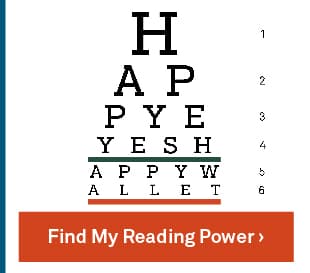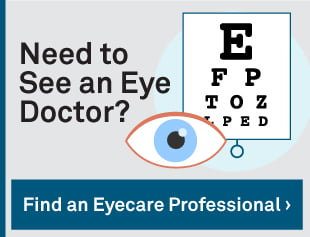 Researchers from the Institute of Ophthalmology at the University College London found that vitamin D reduced the effects of aging in mouse eyes and actually improved the vision of older mice significantly. The group hopes that these results might mean that vitamin D supplements have a similar effect in human subjects.
Researchers from the Institute of Ophthalmology at the University College London found that vitamin D reduced the effects of aging in mouse eyes and actually improved the vision of older mice significantly. The group hopes that these results might mean that vitamin D supplements have a similar effect in human subjects.
Before getting into the details of the study, here’s a little background information on how our eyes age: The retina is the layer of light-sensitive nerve lining the back portion of the eye. The retina receives images formed by the lens and transmits these images to the brain via the optic nerve. Being responsible for our vision is a demanding task and requires a great deal of energy. Therefore, as mammals like mice and humans age, their retinas are subjected to progressive inflammation and debris deposits. This can result in poorer vision that manifests itself in disease like macular degeneration.
The researchers in the study found that when old mice were given vitamin D for just six weeks, inflammation was reduced, the debris partially removed, and the mice demonstrated improved vision in tests.
Professor Glen Jeffery, who led the research, believes that the link between vitamin D and age-related eye diseases may be linked to our evolutionary history. Our ancestors lived in Africa for much of human history and were exposed to sunlight year-round, which would have triggered vitamin D production in the skin. Humans only began moving westward and adopting clothing relatively recently. Thus, they may not be well adapted to reduced sunlight. Additionally, life expectancy has increased dramatically over the last few centuries. The combination of reduced vitamin D production and longer lifespan may be the reason aging has such a dramatic effect on the eyes.
While full clinical trials involving humans still need to be conducted before aging patients can be advised to take vitamin D supplements, there seems to be a significant amount of evidence pointing to a connection between vitamin D deficiencies and health problems in the Western world.
In the meantime, make sure youre getting your daily dose of vitamin D. Not only is the sunshine vitamin potentially good for your eyes, but it helps the body absorb calcium from your diet. Try to spend time in the sunshine (when its available); as little as 10 minutes of exposure a day is thought to prevent deficiencies. Vitamin D is also found in many dietary sources like fish, eggs, fortified milk, yogurt, fortified cereals, and cod liver oil.
Try this recipe from Wholeliving.com for a vitamin D-packed meal!
 Curry Rubbed Salmon with Napa Slaw
Curry Rubbed Salmon with Napa Slaw
Ingredients:
- 1 cup brown basmati rice
- Coarse salt and ground pepper
- 1 pound Napa cabbage (1/2 head), thinly sliced crosswise
- 1 pound carrots, coarsely grated
- 1/2 cup fresh mint leaves
- 1/4 cup fresh lime juice, plus lime wedges for serving
- 2 tablespoons grapeseed oil
- 4 salmon fillets (6 ounces each)
- 2 teaspoons curry powder
Directions:
- In a large saucepan, bring 2 cups of water to a boil then add rice. Season with salt and pepper, cover, and reduce heat. Cook until tender about 30 to 35 minutes.
- Meanwhile, in a large bowl, combine cabbage, carrots, mint, lime juice, and oil. Season with salt and pepper and toss.
- Heat broiler with rack set 4 inches from heat. Ten minutes prior to when the rice is done cooking, place salmon on a foil-lined baking sheet. Rub salmon with curry and season with salt and pepper. Broil until just cooked through about 6 to 8 minutes.
- Fluff rice and serve alongside salmon and the salad.
Sources:
Medical News Today
Dr. Ben Kim
Whole Living
 Curry Rubbed Salmon with Napa Slaw
Curry Rubbed Salmon with Napa Slaw




0 Comments